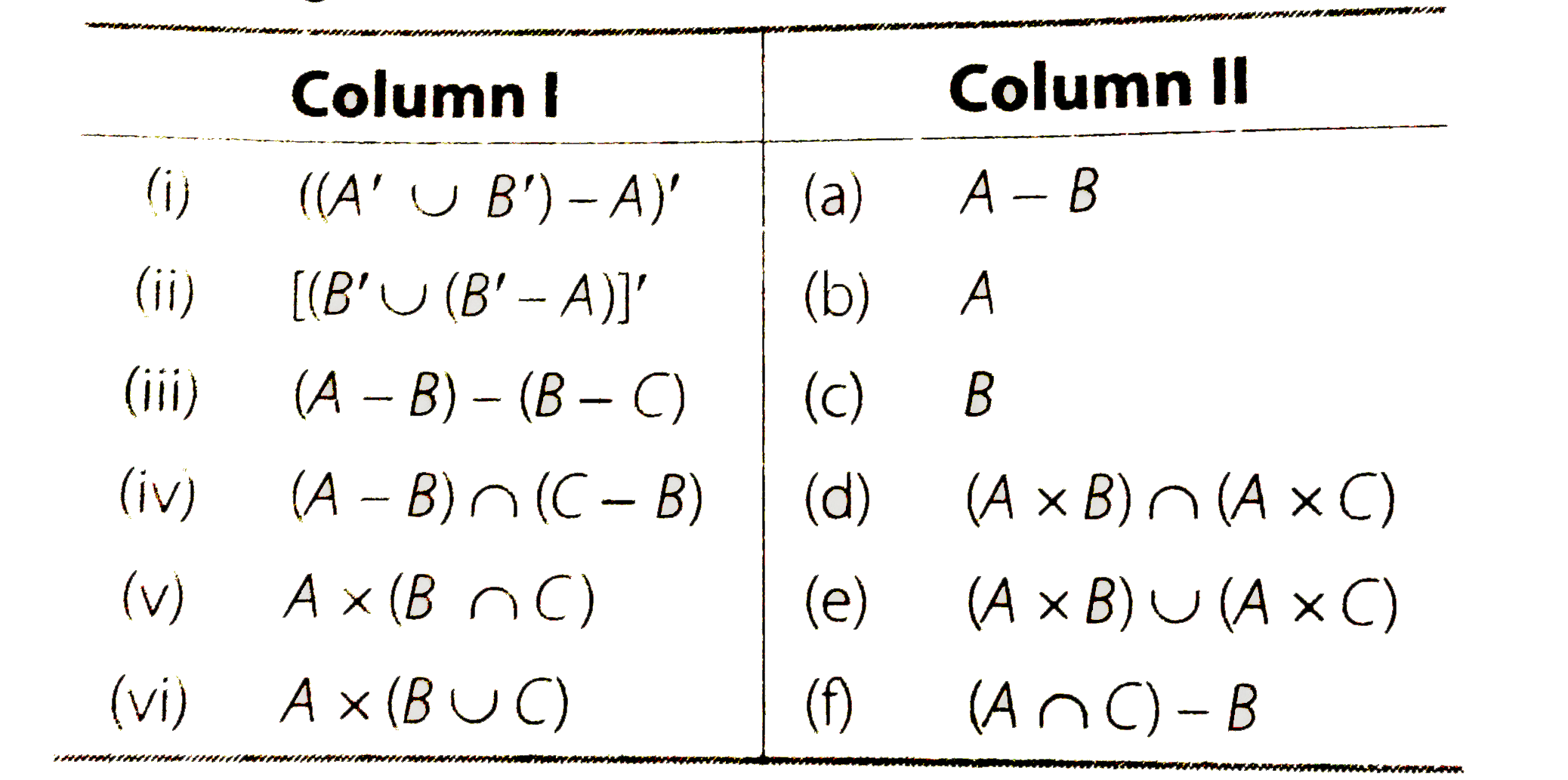Let U={1,2,3,…..,20}. Let A, B, C be the subsets of U. Let A be the set of all numbers, which are perfect squares, B be the set of all numbers which are multiples of 5 and C be the set of all numbers, which are divisible by 2 and 3. Consider the following statements :
I. A, B, C are mutually exclusive.
II. A, B, C are mutually exhaustive.
III. The number of elements in the complement set of A∪B is 12.
Which of the statements given above are the corret?
A
I and II only
B
I and III only
C
II and III only
D
I, II and III
Video Solution
Text Solution
The correct Answer is:B
Let, U = {1,2,3,….,20}
A=Set of all numbers which are perfect square = {1,4,9,16}
B=Set of all numbers which are multiples of 5=(5,10,15,20}
C=Set of all numbers which are divisible by 2 and 3
={6,12,18}
A∪B={1,4,9,16,5,10,15,20}
⇒n(A∪B)=8
⇒n(A∪B)'=20−8=12
Also, n(A∪B∪C)=n(A)+n(B)+n(C)
∵A∪B∪C={1,4,9,16,5,10,15,20,6,12,18}
n(A∪B∪C)=11
andn(A)+n(B)+n(C)=4+4+3=11
Hence, only statement I and III are correct.
|
Topper's Solved these Questions
Similar Questions
Knowledge Check
If A is the set of all integral multiples of 3 and B is the set of all integral multiples of 5, then A∩B is the set all intergal multiples of :
A3 + 5B5−3CGCD (3, 5)DLCM (3, 5)If A is the set of all integral multiples of 3 and B is the set of all integral multiples of 5, then A∩B is the set all intergal multiples of :
A3+5B5−3CGCD(3,5)DLCM(3,5)Let Z be the set of all integers and let a*b =a-b+ab . Then * is
ACommutative but not associativeBAssociative but not commmutativeCNeiter commutative nor associativeDBoth commutative and associative
Consider the following sets:
A= set ofnaturai numbers which are multiples of 2
B= set ofnaturai numbers which are multiples of 3
C= set ofnaturai numbers which are multiples of 5
Then find the following set
(i)A∪B(ii)B∪C(iii)A−B(iv)B−C(v)A∩C<br>(vi)A∩B∩C(vii)(A∪B)−C
View SolutionIf P={1,2,3,…….,256} , two of its subsets are A and B. A is the set of all multiples of 3 and B is the set of all multiples of 4. Find n(A∩B).
View SolutionLet A, B and C be three sets, then which of the following is true?
View SolutionLet A,B and C be sets such that A∩B⊆C and A∩B≠ϕ. Then which of the following statements is not true?
View SolutionLet A, B and C be three sub-sets of a universal set U. if AΔC=BΔC, then
View Solution

